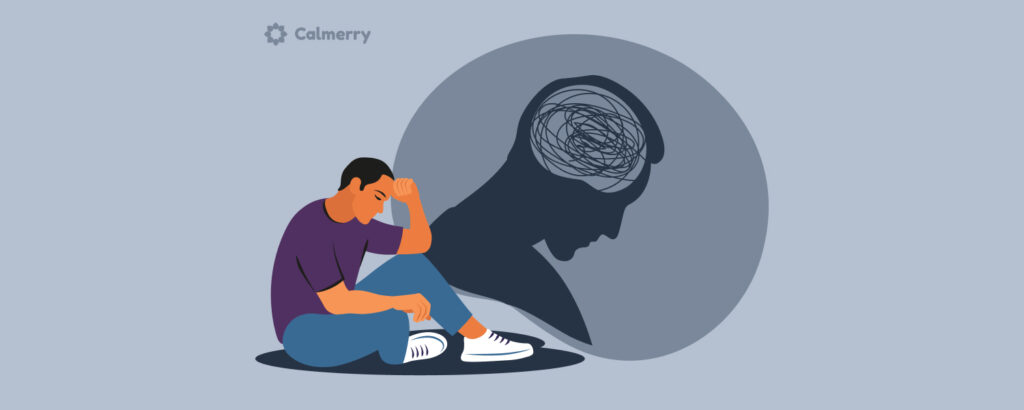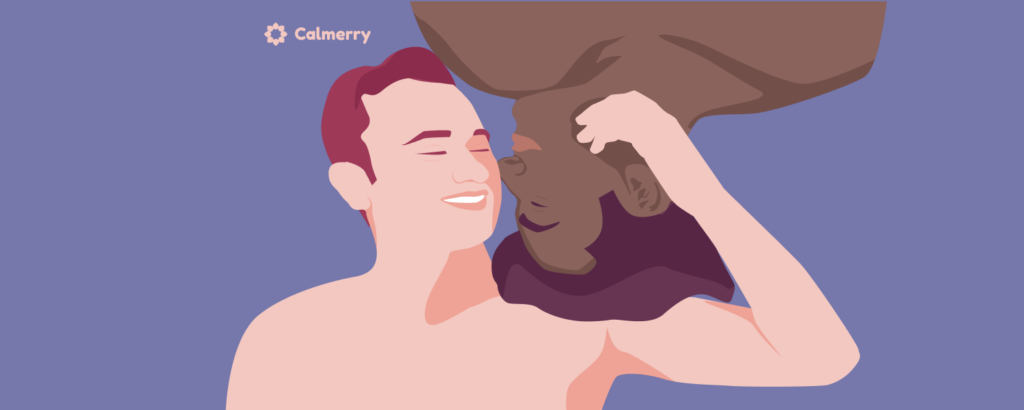How Men Fall in Love and How Their Brain Responds

Table of Contents
When we think of love, we think of the heart, but love really happens in the brain. As you go through the stages of love, certain neural activity occurs.
Love is very much a process, but interestingly, the process differs slightly between men and women. How men fall in love is not the same as how women do.
And that’s what we’ll be looking at today – how men fall in love and what happens in their brains when they do. We’ll look at the biology and psychology of falling in love, the different stages of love men go through, and the gender differences.
Love can often be confusing, but hopefully, this article will help explain how it works and why it has such a powerful effect.
Stages of falling in love in a man
Before we dive into the brain chemistry and biology of love, let’s first take a look at the three basic categories or “stages” of romantic love, according to biological anthropologist Helen Fisher, Ph.D. Although her study was last revised in 1997, it’s still referenced today.
1. Lust (sex drive)

Lust is not love and shouldn’t be mistaken for it. Lust is driven primarily by the hormones testosterone in men and estrogen in women.
It’s a temporary feeling driven by a desire for sexual gratification that enables you to find potential mating partners. It’s based on an evolutionary need to reproduce that is common among all living species.
You could lust for someone you’re in love with, but you could also lust and have sex with someone you don’t love.
2. Attraction (romantic love)
During this stage, you focus your attention and mating energy on one person. You obsessively think about them and crave their company, feeling a surge of extra energy and excitement. These feelings are caused by three chemicals: norepinephrine, dopamine, and serotonin.
Scientists often compare this stage to addiction as it activates the brain’s reward center and has powerful effects on our behavior and emotions. It usually lasts between six months and two years.
3. Attachment (long-term love)
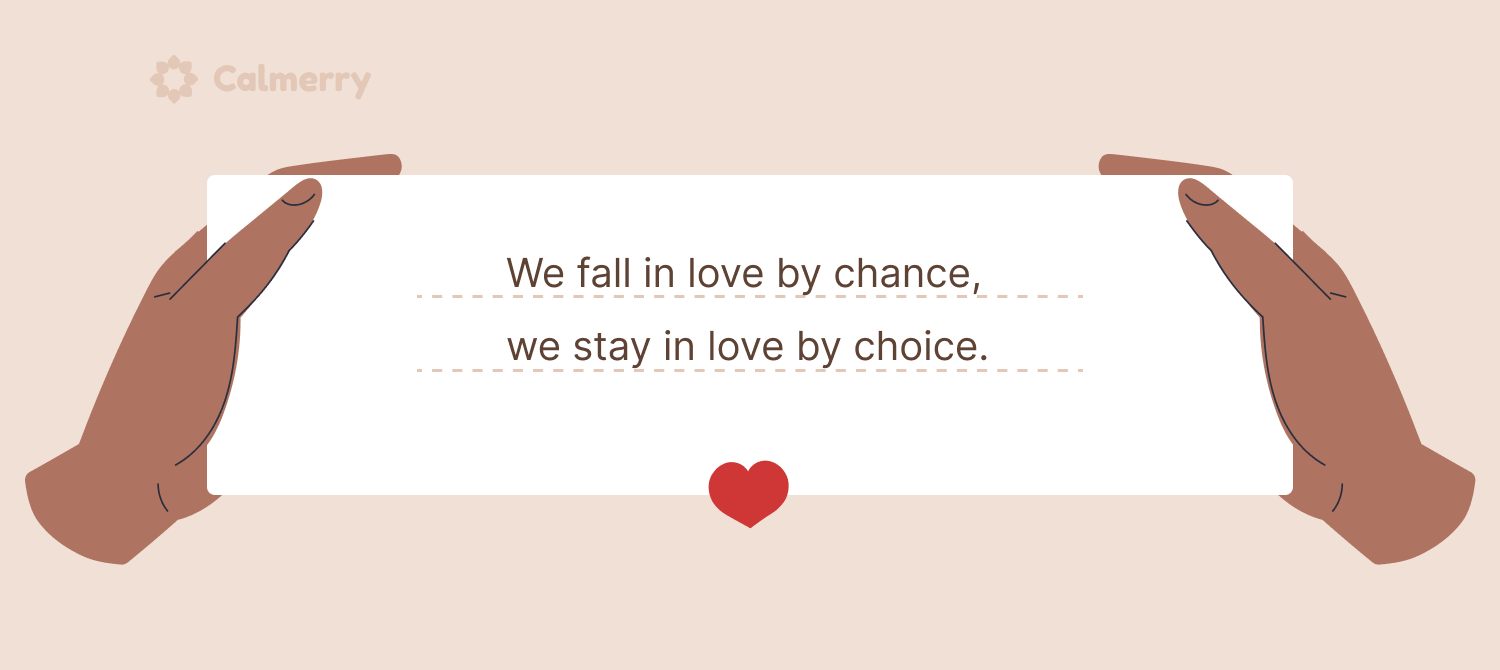
This stage is key to the success of long-term relationships. It’s a “calmer” form of love that affects us differently compared to the attraction stage.
After about four years of being in a relationship, the dopamine level decreases, and the attraction goes down. And if things are going well, dopamine gets replaced by two hormones: oxytocin and vasopressin. They create the desire to bond with your partner and nurture them.
Attachment allows couples to stay together long enough to raise children, develop a deep, meaningful bond, grow old together, and feel contentment.
So, love usually begins at stage 2 (attraction) and progresses to stage 3 (attachment), but lust drives many couples to meet and form a bond, which can later lead to love. It’s possible in some cases for couples to skip stage 2 and go straight to stage 3, such as in arranged marriages.
The three stages above apply to both men and women, but what happens on a biological level is where the differences lie.
How do men fall in love?
Certain neurotransmitters and hormones need to build up over time before a man or woman falls in love.
According to love biologist Dawn Maslar, the chemicals dopamine and vasopressin are vital for a man to start falling in love, whereas it’s oxytocin and dopamine for women.
Oxytocin, often nicknamed the love or cuddle hormone, also plays an important role in men, but at a later stage. When men are dating but not yet in love, their testosterone levels are higher, which blocks the bonding effects of oxytocin.
Generally, the hormones and neurotransmitters needed for love build up gradually while dating, getting to know, and building trust with a potential partner.
Does sex make men fall in love?
A common misconception is that men fall in love in the bedroom, but Maslar believes that some men may lose interest if sex happens too quickly.
A woman may bond more closely to a man after sex in the early dating stages, but the man won’t necessarily reciprocate those feelings right away. Here’s why:
- A man’s dopamine and vasopressin increase when they’re dating a woman, enjoying it, and is sexually interested in them. But their vasopressin drops when they have sex with a woman.
- A woman’s dopamine and oxytocin will also gradually increase if they’re enjoying dating a man and are sexually interested in them. However, the difference is that women’s oxytocin rises considerably when they orgasm.
The Coolidge effect
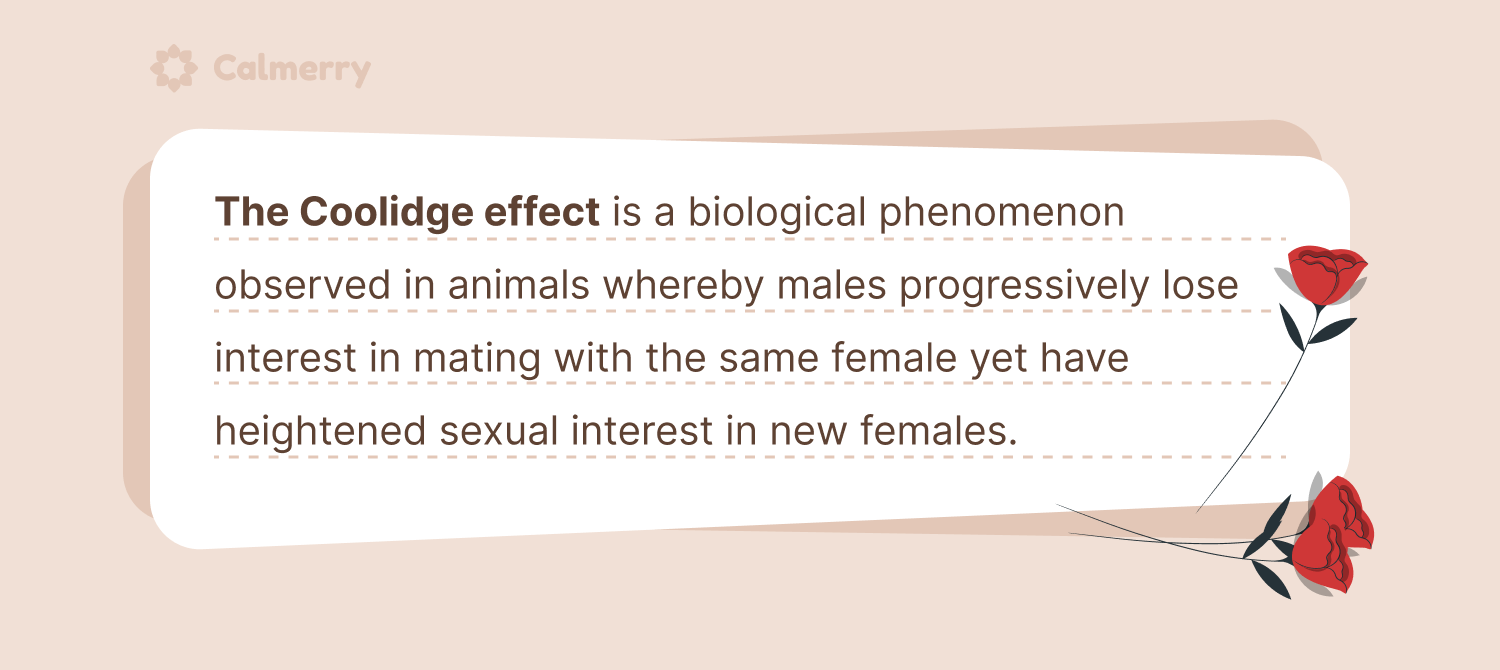
It’s believed that the Coolidge effect can sometimes come into play when sex happens quickly.
The Coolidge effect is a biological phenomenon observed in animals whereby males progressively lose interest in mating with the same female yet have heightened sexual interest in new females.
Maslar explains that when a man first starts dating, they’re very excited, and their dopamine and vasopressin go up. But if they satiated sexually too quickly, they drop back down. Therefore, a man may lose interest, pursue other women, and not be around long enough to fall in love.
However, it’s also important to note that this isn’t always the case, and men can still fall in love with women they have sex with early in the relationship. Still, couples need to be careful not to confuse the exhilarating feeling of lust for love to avoid trouble later down the road.
Why commitment could be the key to love for men
Studies show that men in committed romantic relationships have 21% lower testosterone than men who are not. That means when a man commits, their testosterone will no longer be blocking the bonding hormone oxytocin, helping them fall in love and develop a long-term bond.
The study also showed that marriage isn’t a defining factor, as both married and unmarried men can be in committed relationships and experience lower testosterone.
When a man’s testosterone drops after committing to someone, it doesn’t mean they will experience diminished sex drive. But they should lose interest in pursuing sex from other women.
6 love tips for men and couples to make it work
Okay, so we’ve talked a lot about what happens to a man when they fall in love and the chemical processes involved, but what practical advice can we take from it?
Well, here are six tips for men and couples at the early love stage:
Be prepared for changes in your body
When you fall in love, your brain releases a cocktail of chemicals that alter everything from your sleeping habits to your appetite. You might find yourself wanting to spend more time with your partner or feeling more “needy” and dependent.
Accepting these changes can be a challenge, but it’s important to remember that they’re absolutely okay, and you will eventually adjust.
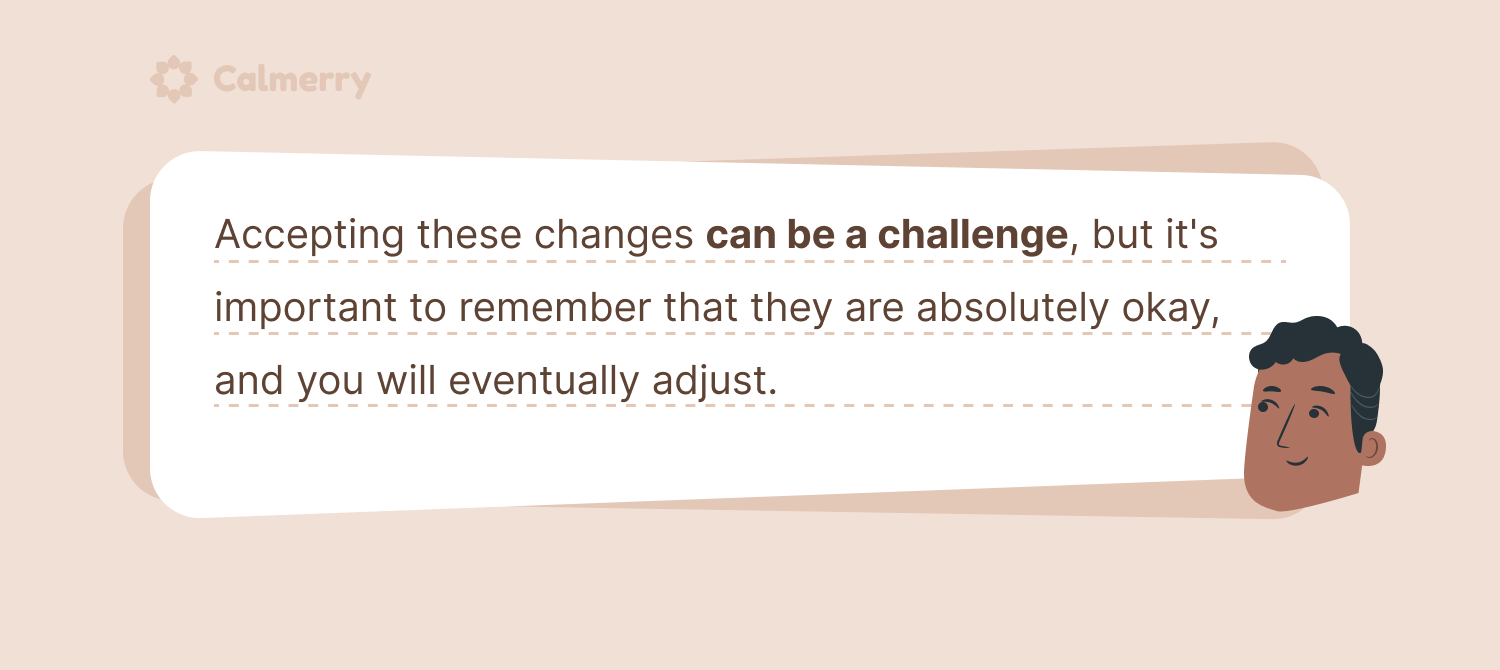
Be self-aware of your experiences
If a man becomes “addicted” to their partner, this could indicate they’re at the romantic love stage. Consider abstaining from sex for a while to see if your relationship is built on more than lust.
As we see from the data above, if a man loses interest in pursuing other women and finds their partner most desirable, this is a good indicator of interest in building long-term relationships.
Be patient
Love takes time, so don’t rush into anything without thinking it through first. Give yourself and your potential partner time to get to know each other and see where things go.
Communicate openly and honestly
Communication is key in any relationship, but it’s especially important in a new one. Make sure you’re both on the same page from the start by communicating your needs openly and honestly with each other.
Seek professional help if needed
If you find yourself struggling to cope with the changes brought on by falling in love, don’t hesitate to reach out for help from a therapist. They can support you during this potentially challenging time and help you explore your emotional and physical experiences.
Text therapy is a modern and convenient option that allows you to connect with a therapist through messaging, offering a flexible way to discuss your feelings and seek guidance.
A therapist on Calmerry can also provide guidance on recognizing each other’s positive attributes and patterns and building a happy relationship and long-term attachment.
Final words
Understanding how love affects the brain and body won’t make it any less intense or memorable. Still, it might help you avoid some unworkable relationships, heartbreak, and other potential pitfalls along the way and get to know yourself better.
If you’re still unsure whether you’re in love, if your partner loves you, or if you have any other relationship concerns, our therapists here at Calmerry are always ready to help.
It can be hard to adjust and know how to build long-lasting, healthy relationships. So, online counseling is a great way to receive impartial, supportive, and expert guidance.
-
Learn morePersonalized online therapyChoose video, messaging, or both to fit your schedule and comfort. Get matched with your therapist within 1 hour.
-
Learn moreOne 60-minute live video sessionSee how online therapy works and get quick support with a single therapy session. No commitments.

